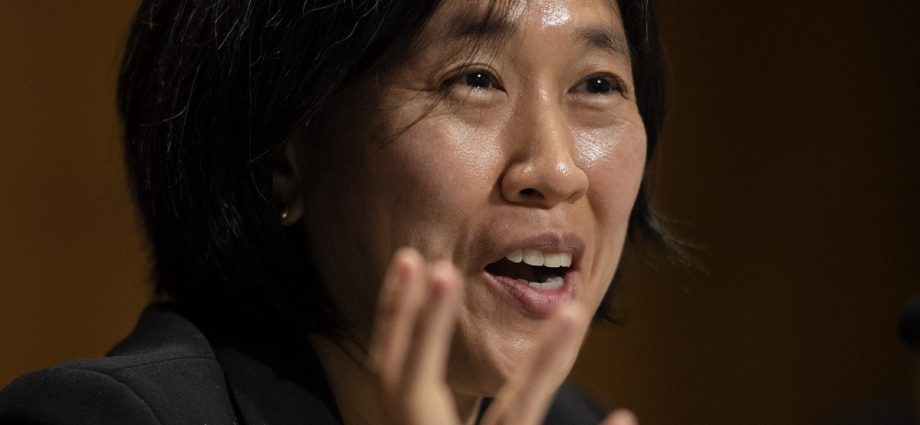Speaking at the Brookings Institution in April 2023, US National Security Advisor Jake Sullivan declared national security and industrial policy as the guiding lights for US trade. Sullivan couched his prescriptions in soft tones and catchy phrases. “Decoupling” is out, “de-risking” is in.
The goal is to “forge a new consensus” — something different to the market-oriented Washington Consensus of yesteryear. National security restrictions have their limits set in a “small yard, high fence.”
US security is not trying to engage in a “technology blockade” against China but rather on a “level playing field.” The phrasing recalls Napoleon’s remark of an “iron fist in a velvet glove.”
Embedded in Sullivan’s remarks were familiar neo-mercantilist themes. These include that post-Second World War trade agreements did little to improve US life and, at most, only enriched wealthy Americans instead of working people. Neo-mercantilist themes also suggest that industrial policy is essential to spark innovation in neglected sectors.
They emphasize that allies should accept heavy US subsidies even when they attract private investment to US shores and that national security, broadly defined, must take precedence over market forces.
Not surprisingly, Sullivan’s speech brought cheers from the deacons of neo-mercantilism. Clyde Prestowitz, an independent columnist, applauded Sullivan for turning his back on free trade and globalist policies. Todd Tucker of the Roosevelt Institute warmly endorsed Sullivan for embracing industrial policy and “moving away from a moribund neoliberalism.”
Oren Cass of American Progress quibbled that “decoupling is essential” and admonished Sullivan for not carrying the ascendancy of national security and industrial policy far enough.
Sullivan and his supporters dismiss fundamental facts. Post-war liberalization, accompanied by revolutions in transportation and communications, raised living standards for billions of people. Gains to the United States alone now amount to more than US$2 trillion annually, some 10% of GDP.
Despite its declining popularity, trade still commands majority support among Americans. Massive industrial subsidies that are awarded to select firms may fail to accelerate growth in the United States. Intense competition between leading firms — whether domestic or foreign — seems the better formula.
If the United States cares about its global leadership role, neoliberalism is far superior to neo-mercantilism.
Echoing US Trade Ambassador Katherine Tai, Sullivan proposed “modern trade agreements” — as opposed to old-fashioned free trade agreements — to achieve “21st-century goals.” Those goals are to foster green energy, ensure safety and openness in digital infrastructure, avoid a race to the bottom in corporate taxation, protect labor and the environment and tackle corruption.

The avatar of “modern trade agreements” is the Indo-Pacific Economic Framework, an agreement that contemplates neither economic incentives nor enforcement mechanisms to achieve the goals commended by Sullivan and Tai.
Tariff cuts are not on the table. By implication, market access provisions such as Buy America waivers and exceptions to the Jones Act — which requires goods shipped between US ports to be transported solely on US ships — have also been ruled out.
As if to emphasize the economic vacuum, Taiwan characterized its parallel agreement with the United States as a “building block” to an eventual free trade agreement. But nothing in the draft agreement lowers barriers to farm trade, reduces tariffs on manufactured goods, or relaxes Buy America regulations. Such market access provisions are high on Taiwan’s wish list.
From Adam Smith in 1776 to the present, free traders accept the primacy of national security. But the eternal question is about the proper domain of restrictions. US decisions as to whether a country, company, product or technology threatens US national security are shielded both from public and judicial scrutiny and deliberately ignore economic costs.
As long as Sullivan is National Security Advisor, the yard may remain small, but his successor could have expansive views — especially if former US president Donald Trump is elected to a second term.
US President Joe Biden has successfully enacted his domestic agenda and further legislative action on the trade front and now awaits the president elected in November 2024. This should be a moment for Biden to use his presidential powers to promote an ambitious World Trade Organization agenda.
For the next 18 months, Biden should thereby add the world economy to his justified focus on Ukrainian defenses.
Yet Sullivan gave only a weak nod to the World Trade Organization. Sullivan’s words conveyed no call for US leadership in building a rules-based trading system respecting market principles. But Sullivan’s remarks should not be the last we hear from President Biden on US policy towards the global economy.
Gary Clyde Hufbauer is Senior Fellow at the Peterson Institute for International Economics.
This article was originally published by East Asia Forum and is republished under a Creative Commons license.

